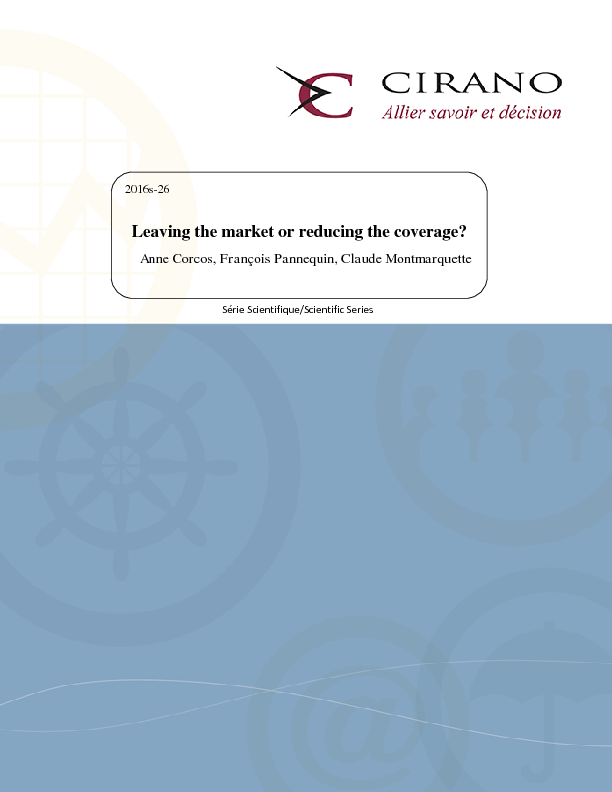Leaving the market or reducing the coverage?
This study develops an experimental analysis addressing the premium sensitivity of the demand for insurance accounting for risk attitudes, including risk-loving. Our contribution disentangles the conditional demand (the non-null demand for insurance) from the propensity to buy insurance. Our research shows that the contraction of the global demand for insurance induced by the raise in unit prices and fixed cost is primarily due to policyholders exiting the insurance market rather than reducing their levels of coverage. However, contrary to the theoretical predictions, an increase in the fixed cost has effects only on the risk lovers’ behavior. The stability of the conditional demand is robust to changes in insurance contracts and individuals’risk attitude. These results suggest that the decision about insurance may boil down to an “all or nothing” choice.
In line with the theory, risk
lovers express a lower global demand for insurance than risk-averse subjects
and are the first to leave the insurance market when the premium (unit price or
fixed cost) is prohibitive.
Implications regarding public and
economic policies are discussed. As a by-product, our experimental design
enables to test and reject the assumption of inferiority of the risk averters’
demand for insurance.




